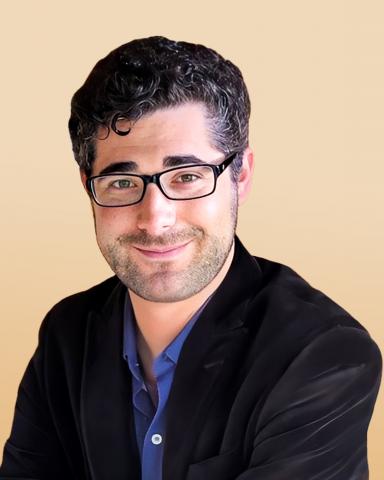
Roland Nadler is a doctoral student at the Allard School of Law conducting research on the topic “Reconciling Technocracy and Democracy in the Age of Courtroom Neuroscience.” Previously, he has been a Visiting Professor at the University of Ottawa in the Center for Health Law, Policy and Ethics, as well as a Fellow at the Stanford Center for Law and the Biosciences. He recently received both the Vanier Canada Graduate Scholarship and the Killam Doctoral Scholarship in support of his research. Roland earned his B.A. degree from Harvard, his Master’s degree from UBC, and his J.D. from Stanford before serving as a law clerk on the United States District Court for the District of Maine. In this interview, he shares some reflections on his research, academic background, and experiences as a PhD student.
Can you tell us a bit about academic and professional background?
My undergrad studies bridged philosophy and cognitive science, setting the tone for everything that followed. I knew I wanted to bring my research focus into a more “applied,” less theoretical space; this brought me to UBC in 2009 to get my start in neuroethics. I quickly figured out that law is really where the rubber meets the road for the issues that excite me most, and so I subsequently departed for California to dive into a JD. From there on out I’ve stuck with the role of legal academic in one way or another.
In a nutshell, what’s the focus of your doctoral research?
There are countless potential areas where law may come into contact with brain science — for good or ill. While there’s much fantastic work out there readying the legal system for these new encounters, it largely focuses on specific rules. What about more systemic consequences? If courts are routinely turning to neuroscience experts on questions formerly suitable for a lay jury or generalist judge, does that square with the principles of a democratic society? We love our experts: science in public policy keeps us thriving (and especially now, surviving). But one oughtn’t dismiss concerns about accountability in a highly technocratic state as somehow crankish.
To put it in goal-oriented terms, the first objective of my doctoral research is to understand how the percolation of neuroscience into law might strain the compromise our judicial system strikes between democratic and technocratic ideals. The main doctrinal area where these tensions manifest is in evidence law, where scientific experts have the most direct influence on a court’s process of fact-finding. But the project’s ambition goes beyond addressing difficulties with procedural rules — it’s to help us ask how the rise of courtroom neuroscience might effectively function as a transfer of legal / political power, fraught with both promise and peril. Perhaps more of one than the other! But I am not sure which, yet.
What aspect of your research excites you the most?
What I find profoundly motivating is how a brain-based approach to legal concepts can re-shuffle so many settled ideas. The view from neuroscience calls into question how law understands everything from memory to intention to harm. I’m ordinarily suspicious of the “disruption” ethos … and yet, as long as these ossified concepts are newly up for grabs, that’s a re-interpretative process I want to bend toward the cause of justice.
Why did you choose UBC and the Allard School of Law?
My institutional familiarity with UBC thanks to my Interdisciplinary Studies MA experience here certainly helped. Interdisciplinarity has always featured heavily in the work I do, so there’s a natural fit for me with a university that has markedly prioritized that ideal. Allard’s faculty made it one of my best bets in terms of doctoral supervision, and that has decidedly borne out. And, not least: I just adore Vancouver.
What has been your most memorable experience at Allard so far?
The biggest challenge doubles as a positive memory. Due to the way the academic calendar and the scholarship application timetables line up, new graduate students are rather unavoidably dropped in the deep end of the pool, required to produce a compelling case for funding their research project almost upon arrival. What made rising to that occasion so memorable — thrilling, even — was the equally immediate support from the program and from my advisor in doing so. No beginner can soar to success on their own right away, so I am fortunate to have been catapulted there.
You were recently awarded both the Vanier Canada Graduate Scholarship and the Killam Doctoral Scholarship. In what ways do you believe these awards would be most beneficial to your research?
For one thing, I am cooking up some empirical survey research, so that plan is now less vulnerable to any future scarcity in funding opportunities. But more important is the additional credibility that comes with such an accolade. I aspire to produce work that changes the conversation in law and neuroscience — ultimately helping the field maximize its beneficial impact — and while I feel confident that my writing can attract attention on its own merits, it adds momentum when the adjudicators say “I believe in you especially.” Truly, I’m more confident about the merits because they said that.
Do you have any advice for incoming graduate students in terms of applying for funding opportunities and balancing the demands of graduate school?
Almost any recommendation I make would require the qualification “if you’re like me” … and in the wildly idiosyncratic world of academia, that means advice is likely going to be hit-or-miss. But there’s one thing I’m quite sure about: help each other. Don’t ever miss an opportunity to be generous, especially to the people you’re in this together with. This is most important right when it’s hardest to muster — when you feel hopelessly daunted, or gripped by impostor syndrome. Coming to someone else’s aid is what will cut right through those feelings in yourself … if you’re like me, at least.



